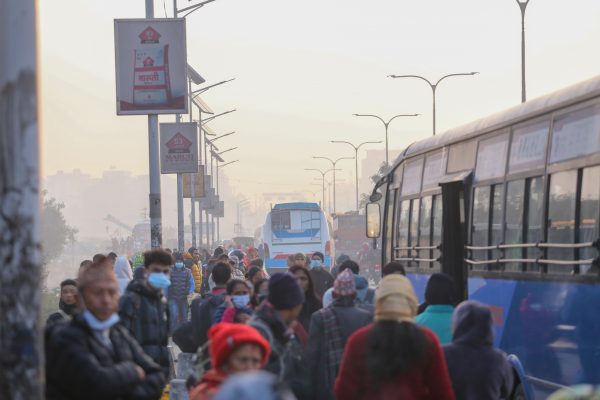Less than half of the global population has access to SPPs. The situation in developing economies like Nepal is much worse, where, on aggregate, only one-third of citizens access SPPs. Nepal provides an interesting case because SPPs have been considered instrumental in its recovery from three significant crises in the new millennium — a decade-long civil war that ended in 2006, the 2015 Earthquake and the COVID-19 pandemic.
The Integrated Social Registry (ISR) collates demographic and household-level socio-economic data in one database. In order to modernise SPPs and civil registration structures, the Nepalese government approved an Integrated National Framework on Social Protection in 2022. But SPPs remain fragmented, as 76 schemes within 29 different programmes are being implemented by 11 different ministries. Consequently, despite limitations and being labelled donor-driven, Nepal is in the process of developing the ISR to improve its identification, enrolment and outreach to potential beneficiaries.
The ISR offers at least two strategic advantages to inform evidence-based SPPs. It can augment Nepal’s readiness for future crises. This is significant because targeted SPPs could not effectively reach the most vulnerable groups in the immediate aftermath of the 2015 earthquake and the COVID-19 pandemic due to the lack of reliable data. SPPs are administered at the federal, provincial and local levels of government and are driven by political interests that often turn a blind eye to the duplicity or multiplicity of initiatives. The ISR can serve as a valuable repository to streamline fragmentation and minimise inefficiencies within SPPs.
The operationalisation of the ISR remains a daunting administrative task. The issue of accurately registering people’s events and other socioeconomic data is challenging, as over two-thirds of the workforce are employed in the informal sector. Nearly a million people leave Nepal to pursue higher education and employment opportunities overseas every year. There is also no mechanism for documenting the exodus of citizens to neighbouring countries, even though up to four million Nepalese are estimated to live or work in India — a large number comparative to Nepal’s population.
These unique mobility patterns demonstrate the need for a dynamic registry with frequent data collection. Some South American countries update their registries as frequently as every two years. But the extent to which the Department of National ID and Civil Registration (DNIDCR) — the federal entity responsible for the ISR in Nepal — will be adequately resourced amid budgetary constraints remains to be seen.
A lack of strategic clarity is reflected in DNIDCR’s current responsibilities. These responsibilities are split into three separate administrative tasks — registering the key events of citizens, the ongoing National ID campaign and overseeing the SPP-relevant database. Nepal should learn from the Malaysian experience of establishing a separate SPP-specific entity, the Social Synergy Programme, as a dedicated body to provide a comprehensive safety net.
Local government authorities, with inadequate human and financial resources and capabilities, are responsible for the collection, maintenance, digitisation and sharing of data with the DNIDCR. Without addressing the digital divide among local government authorities and deficient coordination between federal entities, it remains unclear whether the ISR can aid in the effective and efficient execution of SPPs.
Public confidence in how the political class will utilise the ISR remains low. Experiences from the Philippines and Kenya have shown that tools such as national databases can be grossly misused and mismanaged to exacerbate disempowerment and stigmatisation by identifying and isolating the most vulnerable and marginalised. Nepal has consistently ranked poorly in the global corruption perception index published by Transparency International.
A local newspaper recently reported a scheme hatched by bureaucrats and political leaders to pocket the equivalent of up to AU$1 million in commission by allowing third-party consultants to handle citizens’ data. This indicates a high probability of the ISR being misused. Data breaches and hacking of government websites are frequently reported in the media. Neither the political leaders nor the DNIDCR has assured the public about the safety of their data and the potential ramifications of identity theft.
It is too early to tell how the ISR will be operationalised, but its potential as an evidence-based approach to strengthen social protection in Nepal should not be underestimated. But expecting the ISR to advance SPPs meaningfully would be delusional without addressing inept administration, clarifying its strategic objectives and improving trust in the government to execute SPPs effectively and efficiently.
Subas P Dhakal is Senior Lecturer in the Business School at the University of New England.

